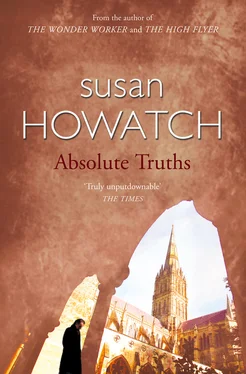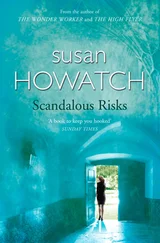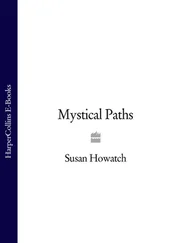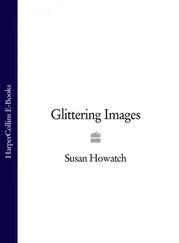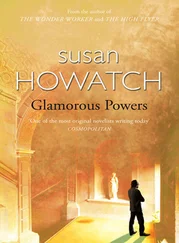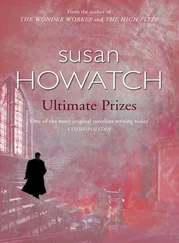Beyond the three Canons who were gathered in the chapel that morning I recognised the Vicar of the Close, who conducted the day-to-day pastoral work for the Dean, and in the same row I noted three retired clergy and my two chaplains, all of whom lived nearby. A couple of devout laymen from the diocesan office and half a dozen equally devout elderly women formed not only the remainder of the congregation but the loyal core of the Cathedral’s band of regular worshippers.
I was about to conclude my quick inspection of those present when I saw there was a stranger among us. This was very unusual. As I have already indicated, few people chose to attend a weekday ‘said’ matins on a dark winter’s morning, and usually the Starbridge visitors who attended church during the week preferred to pass up matins in favour of Holy Communion at eight. I gave the stranger a sharp look, and as if sensing my interest he raised his head to stare straight into my eyes.
I blinked, taken aback. He was a priest, but a sinister one: swarthy, blunt-featured and built like a pugilist. His remarkable eyes, black and hypnotic, were set deep in shadowed sockets, and as soon as I had registered their potential power to cast a spell I found myself thinking: that man’s big trouble. And I wondered which bishop had the ordeal of keeping him in order.
The service started. When Aysgarth read the first lesson I stole another glance at the visitor and wondered if my instinctive distrust had been unjustified. He was conservatively dressed in a well-cut suit. His clerical collar was thick enough to look old-fashioned and his black stock was adorned with a small gold cross, hinting at an Anglo-Catholic churchmanship. The extreme respectability of his clothes formed a bizarre contrast to his sinister countenance and his curious aura of … But I could not quite define the quality of the aura. I could only think again: that man’s big trouble. And I could imagine not only all the women in his home congregation being disturbed by his powerful presence, but far too many of the men as well.
Towards the end of the service I briefly mentioned Desmond’s disaster and proposed that we all observe a moment of silence to pray for his recovery. Intercessions were usually made at the Communion service, but I felt that Desmond’s case should be presented to that tightly knit matins congregation. With the exception of the stranger we all knew each other and we all knew Desmond. In such circumstances I thought my request would call forth a particularly solid shaft of prayer.
After the service I adjourned to the vestry with Aysgarth for the short interval between matins and Communion, and soon we were joined by the three Canons.
‘Who was that man?’ demanded Tommy Fitzgerald.
But no one knew.
I asked: ‘Did no one introduce themselves?’
‘He gave us no chance,’ said young Gerry Pearce. ‘He stayed on his knees and kept praying.’
‘An Anglo-Catholic,’ said Aysgarth neutrally. ‘I noticed the pectoral cross.’
‘Talking of Anglo-Catholics,’ said Paul Dalton, ‘what a shocking piece of news that was about poor old Desmond …’
Desmond was discussed in suitably muted tones for a couple of minutes. Then since it was not the morning when we all attended the Communion service, the group dispersed. Gerry and Paul drifted away to their homes for breakfast. Tommy, who was that month the Canon ‘in residence’, responsible for the services, wandered off to make sure the new verger had set out the right quantities of wine and wafers. Only Aysgarth lingered, waiting to see what I was going to do. ‘Staying on, Charles?’ he enquired casually after Tommy had disappeared. ‘What about that train to London?’
‘I’m not leaving until I’ve seen Desmond.’ Making an enormous effort I forced myself to say: ‘I’m afraid our conversation earlier wasn’t one of our best efforts. I’m sorry.’
‘No need to apologise. Entirely my fault. I’m sorry too.’
How hard we were both trying to be Christian! And what a stilted, awkward job we were both making of it! In despair I wondered if I was even fit to receive the sacrament, but I knew this descent into gloom was unjustified. I repented of my earlier burst of anger; I wanted to attend Communion; I needed the comfort of the sacrament as I faced the long, arduous day which lay ahead.
In silence I returned to the chapel, and in silence Aysgarth, not to be spiritually outdone, padded along by my side.
I wondered what Jon would have said, but decided I was much too depressed to want to imagine.
The stranger nipped out so smartly at the end of the service that he still managed to avoid introducing himself, but everyone had noticed him and everyone wanted to know who he was.
‘Any news?’ said Lyle, bringing me my eggs and bacon as I finally reached the dining-room.
‘Stephen and I bared our teeth at each other.’
‘That’s not news, that’s just history repeating itself. Did you tell Paul that I’ve found yet another possible wife for him?’
‘I’m afraid I forgot. I was diverted by an unknown priest who looked like an English version of Elmer Gantry.’
‘How exciting!’
‘Not for the bishop who has to mop up the inevitable mess.’
I began to skim through The Times. Lyle filled my coffee-cup at intervals and provided hot buttered toast at exactly the right moment. ‘I do wonder what’s happened to Michael,’ she said after refilling my cup for the second time. ‘Will Dinkie break off the engagement straight away or will she wait until she has her claws into Robert Welbeck?’
But I did not want to think of Michael. Instead I retreated to the office where Miss Peabody, already informed by Lyle of my approaching visit to the hospital, was waiting to tell me how appalled she was by the news of Desmond’s assault. The typist had not yet appeared, but from the window I could see my chaplains pausing by the gate to finish their conversation before they turned up for work. At once I glanced at my watch, but they still had five minutes to spare before they were due to cross my threshold. Mentally shelving my standard lecture on punctuality I said to Miss Peabody: ‘Anything interesting in the post?’
‘Nothing urgent.’ Miss Peabody, a large woman of indeterminate age whose favourite colour was navy blue, adjusted her pince-nez before adding: ‘But there’s the most unusual letter from a divorced priest in the Radbury diocese who wants to work in Starbridge. He’s been in a mental hospital for some time.’
‘Draft a letter telling him kindly that I license neither divorcés nor lunatics.’
‘Oh, he wasn’t a patient, Bishop! He was in the mental hospital as a chaplain, but he says he feels he’s now being called to establish a healing centre in a parish setting.’
‘I don’t license charismatic wonder-workers either,’ I said, and then reflected with horror that this description could be applied to Jesus Christ. Rapidly I added: ‘Just tell him the Bishop has a policy of never licensing divorced priests.’
‘But Bishop,’ said Miss Peabody, whose resolute nature could sometimes lead her to sound like a nurse telling her charge that ‘Nanny knows best’, ‘he has the most glowing reference from the Abbot-General of the Fordite monks.’
This was indeed surprising. The Fordites were Anglican-Benedictines who represented the apex of the High-Church wing, and I would have expected their leader to be as opposed to divorced clergymen as I was. ‘Never mind the Abbot-General,’ I said, the recalcitrant charge determined to ‘talk back’ to Nanny. ‘Where’s the reference from the man’s bishop?’
‘There isn’t one.’
‘Exactly. The man’s obviously been sacked for improper conduct and is now trying to wriggle into another diocese by reviving an old connection with the Forditcs. Write to him at Radbury, Miss Peabody, and –’
Читать дальше
